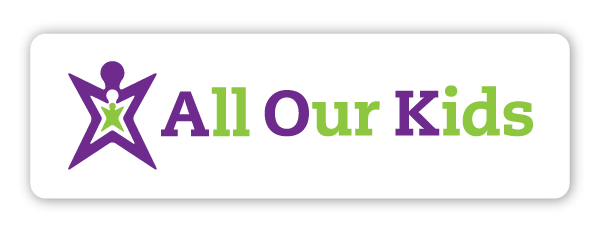Post-Adoption Subsidy
When a child is adopted through DCF, there are ongoing financial supports that remain after the adoption is legalized. If you have questions about post-adoption issues, don't be shy about reaching out to AOK or contacting our Resource and Support Hub Partner, Adoption Journeys.

MassHealth
All children adopted through foster care in Massachusetts are eligible to maintain their Masshealth Insurance coverage. This is part of your post-adoption subsidy package. Importantly, the way children are covered through DCF is very different than the way Masshealth works when a family qualifies based on income. For example, you do not have to choose a Masshealth plan (and we often recommend that you don't), and you do not have to renew coverage. We put together an entire post about MassHealth coverage for adopted children. Should this not answer all your questions, feel free to reach out to our Resource and Support Hub partner, Statewide DCF Medical Social Worker.
It is good to know that receiving Masshealth qualifies the adoption as "special needs" in the eyes of the IRS and allows you to claim the Adoption Tax Credit in full even though you don't have any out of pocket expenses (income qualifications apply).
Clothing Allowance
Beginning in 2022, all families who adopt through DCF are eligible to receive a quarterly clothing allowance for each adopted child. Prior, families needed to qualify based on income. As long as the social worker requested it initially, you should automatically get it. If the worker did not, or if it was processed erroneously and you're no longer receiving it, you can request it at any time by sending in an email, fax, or letter to the subsidy unit.
Childcare
As of this writing in 2023, children receiving formal childcare through DCF will be eligible for a year of transitional childcare after the adoption. However, after that year, there is no mechanism for continued financial support for childcare. If you have questions about this or want to know more, talk to your adoption worker, or contact Resource and Support Hub Partner, DCF Childcare Specialist.
Post-Adoption Subsidy
A child may or may not continue to receive their subsidy (the "daily rate of support") after their adoption is finalized. This decision is made by the Subsidy Unit, and is dependent on a child's special needs. If the subsidy is approved, you will continue to receive it just as you always had, even after the adoption is finalized. If the subsidy is not approved, it is "deferred." This means you can always petition the Subsidy Unit if you feel your child's medical or behavioral health situation has changed and now qualifies him/her for subsidy. This is often the case with adoptions of very young children, whose special needs might not emerge until later. You can also appeal right away, before the adoption.
Your subsidy amount will not change, even if changes are made to the rate of support by legislation in future years. It will always remain at the same level it was when you adopted. Depending on a child's age, the rate does increase, but it will only increase to the amount appropriate for that age at the time the adoption became final.
Adoption subsidies renew every other year on the child's birthday (this change occurred in 2021; prior to that it was annually, and on the adoption anniversary). You will receive paperwork in the mail approximately 90 days before the renewal deadline, and you must return the completed paperwork so as not to experience a lapse in payment.
A note on PACT: Your child's PACT payments also may or may not continue post adoption. The documentation requirements for maintaining PACT after a child is adopted are more intense than those for maintaining subsidy. But like with subsidy, you can appeal a denial or apply for it after the adoption.
Contacting the Subsidy Unit
Over the last two years, the Subsidy Unit has been overwhelmed and inundated with both logistical changes and communication challenges. Many families have received notices indicating their subsidy is at risk of expiring because they didn't submit paperwork on time. In most cases, these are automatically generated due to a backlog of data entry into the system. One day DCF will graduate to online systems rather than paper and postal mail, but until then, don't panic, and contact the Subsidy Unit to ensure your status is fine. Unfortunately, however, the Subsidy Unit is notoriously difficult to contact. See below for some tips.
Phone Numbers:
800-835-0838
617-748-2443
Fax:
617-748-2156
General email:
subsidy.unit@mass.gov
Online inquiry form.
Note: We don't have any experience successfully reaching out to the Subsidy Unit via this form. But it's worth a try!
Postal Address:
Massachusetts Department of Children & Families
Attention: Subsidy Unit
600 Washington Street, 6th floor
Boston, MA 02111
Subsidy Director:
Nakeisha Conward: Email Nakeisha
Other Matters
Remember that children adopted through foster care in Massachusetts have access to tuition remission programs.
